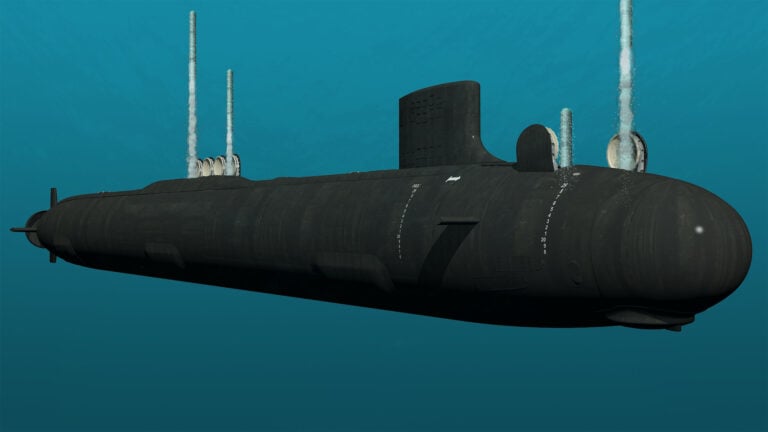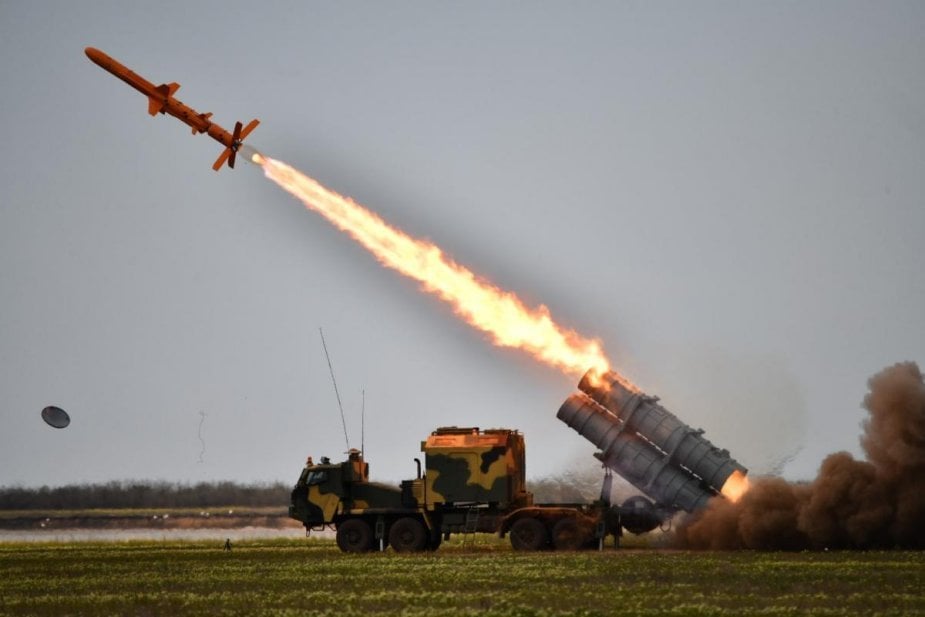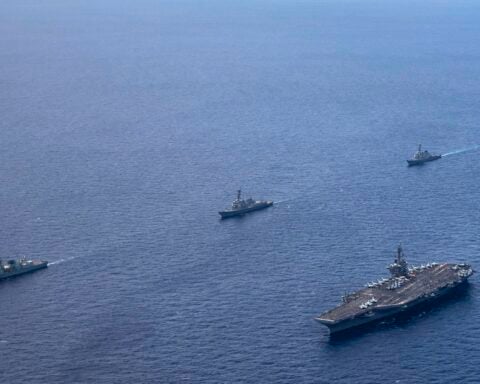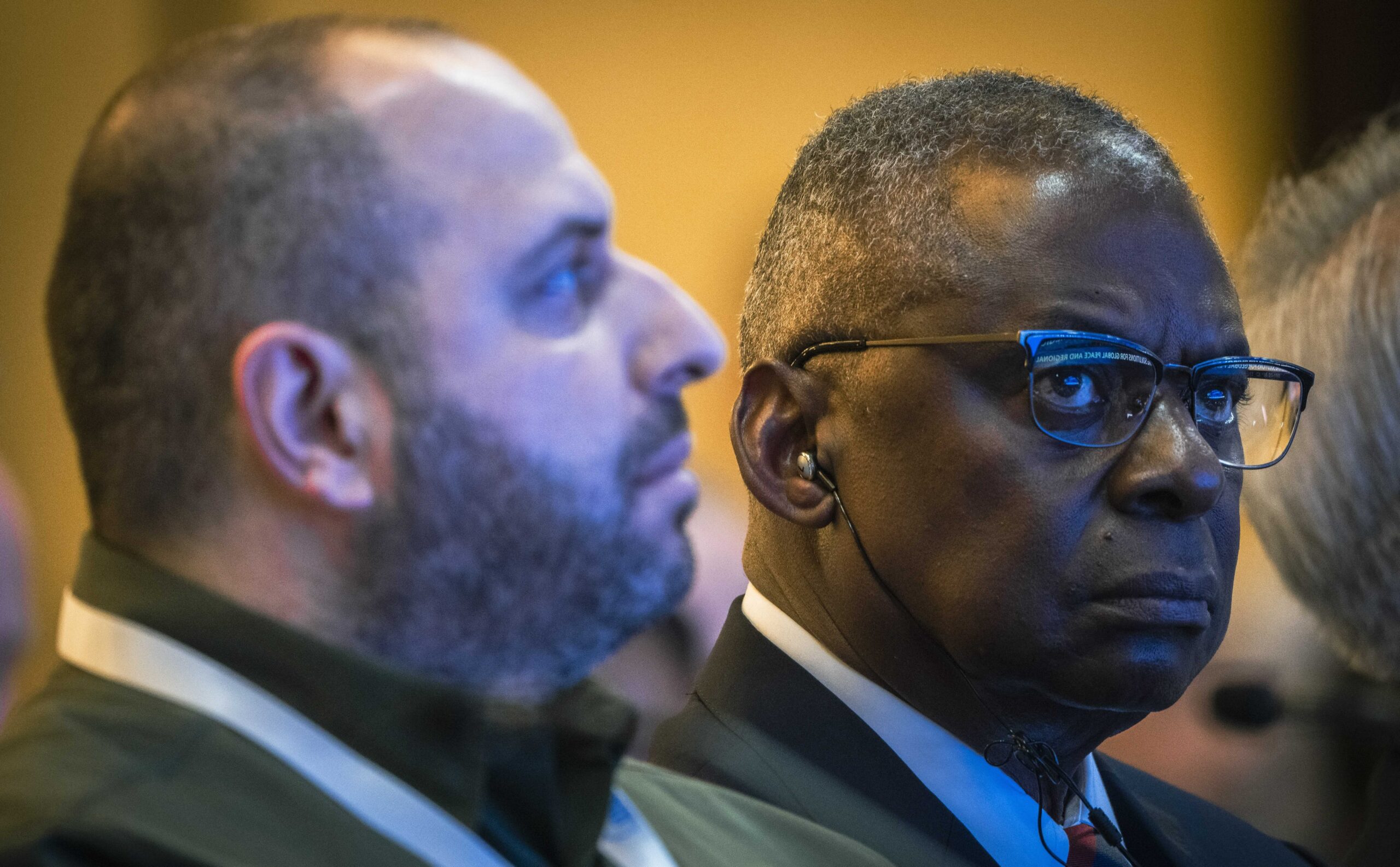
U.S. Secretary of Defense Lloyd Austin and China Defense Minister Adm. Dong Jun presented speeches with differing views on regional security over the weekend at the International Institute of Strategic Studies Shangri-La Dialogue held in Singapore.
Austin reiterated the U.S. commitment to the Indo-Pacific, despite events in Europe and the Middle East, while highlighting U.S. partnerships and collaborative efforts in the region. Dong warned that China would take resolute actions to curb Taiwan independence and that there were limits to China’s restraints regarding infringements and provocations on Second Thomas Shoal and in the South China Sea. He stated that anyone attempting to separate Taiwan from China is “bound to be smashed to pieces and bring about their own ruin” and accused the U.S. of testing China’s redlines on Taiwan.
The difference in perspective was also evident in the terms used to describe the region, with Austin using the term ‘Indo-Pacific,’ which includes South Asia, while Dong used ‘Asia-Pacific,’ a narrower definition that excludes South Asia.
Austin’s speech on Saturday, titled “United States’ Strategic Partnerships in the Indo-Pacific,” made limited mention of China. He stated that disputes should be resolved through dialogue and not coercion or conflict, “And certainly not through so-called punishment,” in a veiled reference to the recent Joint Sword-2024A military drill held around Taiwan, which the Chinese military claimed was punishment for Taiwan independence forces. Austin pointed to China’s actions against Philippines resupply efforts at Second Thomas Shoal, “The harassment that the Philippines has faced is dangerous, plain and simple,” he said.
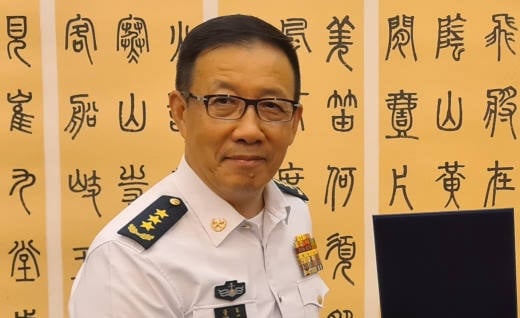
He also referenced Philippines President Ferdinand Marcos Jr.’s keynote address on Friday night, where the Philippine president called for the rule of law to be observed in the South China Sea. “President Marcos spoke eloquently last night about the rule of law in the South China Sea. And he’s right,” said Austin, adding that every country, large or small, has the right to enjoy its own maritime resources and to freely sail and operate wherever international law allows.
Dong, in his speech on Sunday titled “China’s Approach to Global Security,” highlighted the Chinese military’s willingness to cooperate with other countries and China’s intention to observe international law. At the same time, he claimed to speak on behalf of Asia-Pacific nations, stating that they have the ability and confidence to resolve regional issues and despise those who attempt to bolster themselves by taking orders from hegemonic powers—a swipe at the Philippines and Taiwan, whom Beijing has accused numerous times of acting under orders from Washington.
“We will not allow hegemonism and power politics to undermine the interests of the Asia-Pacific countries. We will not allow anyone to bring geopolitical conflicts or any war, whether hot or cold, to our region. We will not allow any country or any force to create conflict and chaos in our region,” said the Chinese defense minister.
Dong reiterated that Taiwan was a core interest to China and that China’s handling of Taiwan was an internal affair that brooks no foreign interference. He said that China was committed to peaceful reunification but that this prospect was eroded by separatists for Taiwan independence and foreign forces. “[The People’s Liberation Army] will take resolute action to curb Taiwan independence and make sure such a plot never succeeds. Anyone who dares to separate Taiwan from China is bound to be smashed to pieces and bring about their own ruin,” Dong said.
Dong also stated that the South China Sea, thanks to concerted efforts by countries in the region, has seen overall stability. However, a “certain country,” indirectly referencing the Philippines, emboldened by outside powers, had broken bilateral agreements and its own promises, made premeditated provocations, and created false scenarios to mislead the public.
Dong said this “certain country” had ignored the overall interests of the region and violated the Association of Southeast Asian Nations Charter by allowing an outside country to deploy a mid-range missile system.
“China has exercised great restraint in the face of such infringements and provocations, but there is a limit to our restraint,” Dong said.
He was presumably referring to a section of the charter which says states should abstain from participation in any policy or activity that threatens the sovereignty, territorial integrity, or political and economic stability of ASEAN member states. No ASEAN state has gone on record to protest the deployment of the U.S. Army Mid-Range Capability missile system to the Philippines in April for exercise Salaknib 24.

In contrast, Austin’s earlier speech focused on reiterating the U.S. commitment to the Indo-Pacific and what he called a new convergence of security in the Indo-Pacific. “The U.S. is a Pacific nation. And it’s because this region, more than any other, is shaping the course of this century. The United States is deeply committed to the Indo-Pacific. We’re all in. And we’re not going anywhere,” said Austin, who later added that despite historic clashes in Europe and the Middle East, such as Russia’s aggression against Ukraine and the Israel-Hamas conflict, the Indo-Pacific has remained the priority theater of operations for the U.S. “The U.S. can be secure only if Asia is secure. That’s why [we have] long maintained our presence in this region. And that’s why we continue to make the investments necessary to meet our commitments to our allies and partners,” said Austin.
Austin highlighted what he termed as a new convergence around nearly all aspects of security in the Indo-Pacific, producing a stronger, more resilient, and more capable network of partnerships. “This new convergence is not a single alliance or coalition, but a set of overlapping and complementary initiatives and institutions, propelled by a shared vision and sense of mutual obligation,” said Austin, pointing to the Australia-Japan Reciprocal Access Agreement as an example.
During the question-and-answer session, Austin was asked how the U.S. would respond if Chinese confrontations with the Philippines over the Philippines resupply mission to Second Thomas Shoal resulted in a Filipino death. He replied that he would not comment on hypothetical scenarios but would only state that the U.S. commitment to the mutual defense treaty with the Philippines was ironclad.
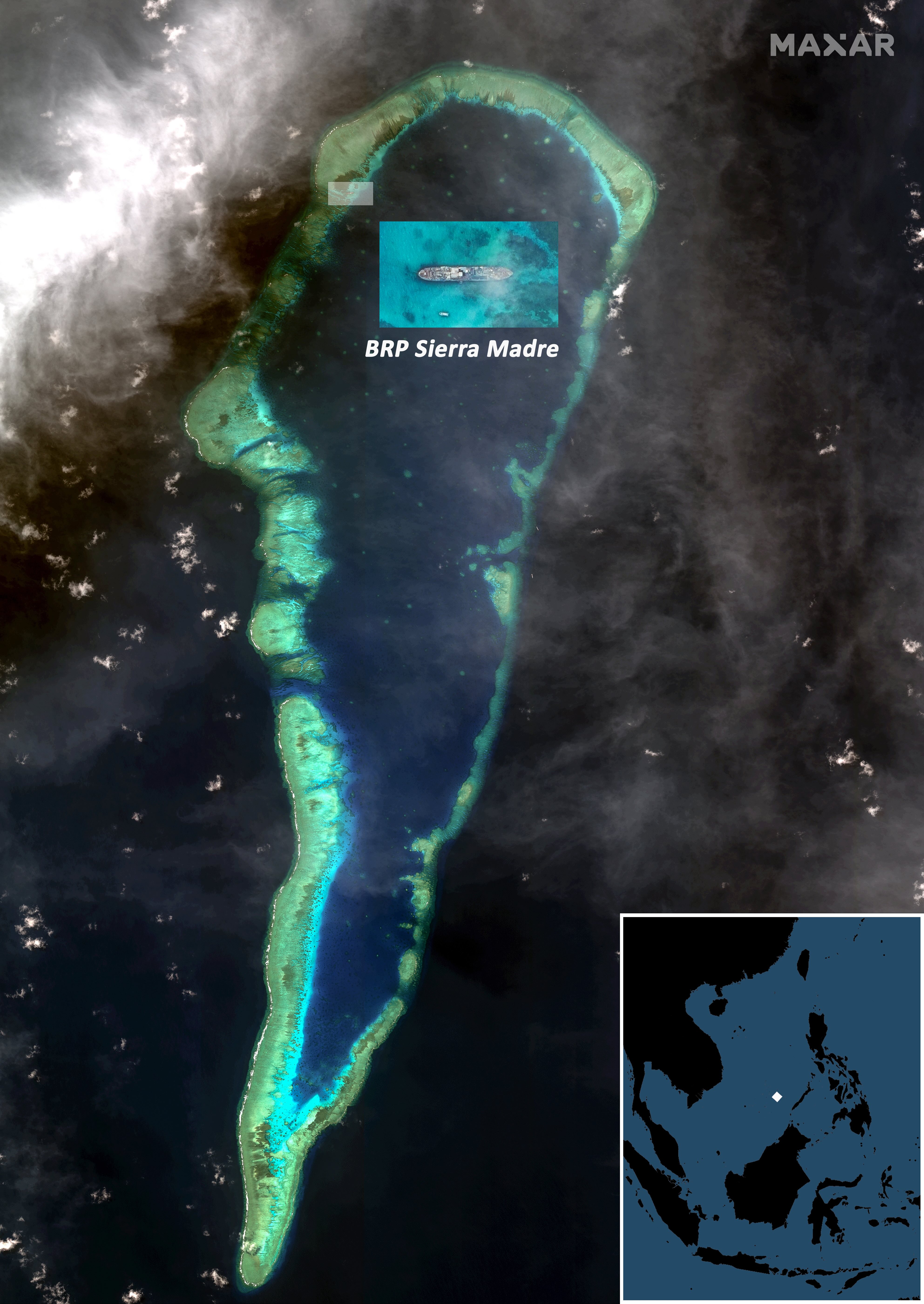
The U.S. Secretary of Defense also pushed back on a Chinese military officer’s question about whether the U.S. is trying to build a NATO-like alliance system in the Indo-Pacific region and that NATO expansion led to the current ‘Ukraine crisis.’ Austin stated that he disagreed that NATO expansion caused the Ukraine crisis, prompting spontaneous applause from delegates present. “The Ukraine crisis obviously was caused by Mr. Putin making a decision to unlawfully invade his neighbor,” said Austin, who also stated that what was happening in the Indo-Pacific was a convergence of like-minded countries who shared common values and a common vision of a free and open Indo-Pacific and were working together to achieve that common vision. “We will continue to do those kinds of things going forward.”
Dong, meanwhile, in his question-and-answer session, chose to largely overlook the various questions put forth to him and instead spoke on Taiwan. He stated that “some big power” keeps hollowing out the One China Principle and testing China’s redlines through official engagements with Taiwan and selling arms to Taiwan. “This kind of behavior sends wrong signals to Taiwan independence forces and makes them more aggressive,” said Dong, claiming the purpose of such actions was to contain China by using Taiwan.
Dong denounced the concept of Freedom of Navigation operations, stating that as far as he knows, in the South China Sea, there has not been one incident of any civilian ship having its freedom of navigation compromised. He mentioned that a head of state of a Southeast Asian country recently expressed a similar view and that some “big power” keeps increasing its presence and deploying military assets to the area, asking if that power came to the South China Sea for peace or to stir up trouble. Dong also stated that “some country,” again indirectly referring to the U.S., had not signed the U.N. Convention on the Law of the Sea (UNCLOS) but used it without authorization to violate other countries’ sovereignty with Freedom of Navigation Operation, which he deemed hegemonic behavior.
Dong had harsh words on recent encounters with the Philippines at Second Thomas Shoal. He said the current administration In Manilla had reneged on prior agreements with China.
“Like a passer-by and a vehicle, he hit the vehicle by himself but then played the victim to blackmail the driver of the vehicle,” Dong. He called the Philippines blackmail and hijacking of the rules-based order. He said that Chinese actions had been restrained and in accordance with its laws.
“I also want to say – our tolerance for deliberate provocations – we have limits,” Dong said.



